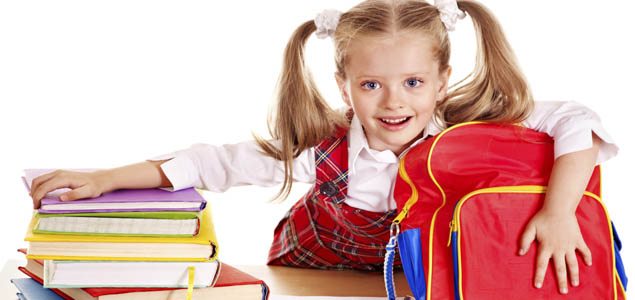Starting ‘big’ school can be… well, ‘big’. It’s a huge deal for kids. There is a whole new environment to learn about and exist in. New buildings, new people, new routines, new schedules, new rules, and new expectations – not to mention the new clothes, new shoes, new bags, lunchboxes, drink bottles, and books. Not only is almost entirely everything new, but generally there is a lot more of everything.
A lot more people, a lot more rules, a lot more bells and other noises, a lot more focused school work, a lot more variety of experiences, a lot more food choices at the canteen and perhaps a lot more variety in the personalities and behaviours of the people around them than they’ve been used to.
On top of having ‘more’ of everything and everything being ‘new’, everything is ‘bigger’. We can run through the same list – bigger buildings, bigger people, bigger clothes, bigger drink bottles, and in some cases bigger surrounding personalities and behaviours. And of course a special mention needs to be made of the school bags. Often the school bags look at least three sizes too big for the little bodies carrying them on their backs!
One of the main things young school age kids need, is for us to remember that they will be coming across issues and situations they most likely won’t have come across in their little lives so far. Another main need they have, is a ‘skill set’ to deal with them. And along with their drink bottle, jumper and spare undies, their school bag can carry these skills to school everyday.
While the issues and situations they will come across can be many, varied and dependent on many factors, the skills they will need to deal with them can fall into a few categories.
– Resilience is a big one. This refers to their ability to soldier on despite receiving a few knocks.
– Communication. This term covers quite a range of skills, but generally having a willingness to talk to and listen to people will be helpful, as will a willingness to talk about anything that might be troubling them at times.
– Developing over time some ways to identify their feelings and communicate about them will be useful.
– Dealing with conflict will come in handy.
– Social skills to mix socially and make friends will be helpful.
– Flexibility and Cooperation will help them to cope with all the change they come across when starting school, as well as with adjusting to new rules, schedules and routines.
Who teaches them these skills? Well their teachers certainly contribute significantly, but largely we – their parents and caregivers – teach them these things through our relationship with them.
More specifically we teach them through how we choose to interact with them, and How we choose to deal with the school issues and situations. In my book Best Start I outline how we, through our relationship with our children can help them to develop solid emotional foundations. The work continues with the age group that is the focus of this book, because now the emotional foundations are going to school. The approach is the same, the principles are still very much relevant, but just applied to school age and accompanying developmental levels and issues that can come up at school.
So we too have our very own school bag full of skills that we can carry with us everyday. In our bag are things such as:
– being mindful that our children will be experiencing new things and new feelings
– remembering to try to see things from their viewpoint
– valuing open communication about feelings
– valuing emotional development
– giving them some room to apply skills they have learned
– remembering to remain invested in their development and be available as needed
– developing an attitude that features some empathy when it comes to dealing with the issues that come up
– developing an understanding of the expectations of children when starting school, e.g., in a traditional school setting they will need to work within certain structures and boundaries
– remembering to be self-aware and in touch with our parenting values – that is, how we want to be as a parent.
– remembering that our children’s experiences at school are theirs not ours. The challenges our kids come across at school can trigger our own challenges when we were at school and can potentially interfere with our ability to see/interpret the various happenings for our kids without the bias of our own experiences. Lots of stuff in our bag. I think ours might be even bigger than our kids’!
ABOUT THE AUTHOR:
Lynn Jenkins is a clinical psychologist, author and mother to three young children. She is very passionate about providing education about the social and emotional needs of infants and children. In her private psychology practice, Life Matters Psychologists, she specialises in perinatal mental health and is particularly interested in the parent-child relationship. Lynn is trained to facilitate several parenting programs that focus on nurturing the relationship between parents and children, which she runs through her practice. She contributes regularly to various online parenting sites, and her first book, Best Start: Understanding your baby’s emotional needs to create the best beginnings was released in 2012.
This is an extract from School Start by Lynn Jenkins. School Start is available from www. exislepublishing.com.au and wherever good eBooks are sold. RRP$4.99. Available January 2014.







